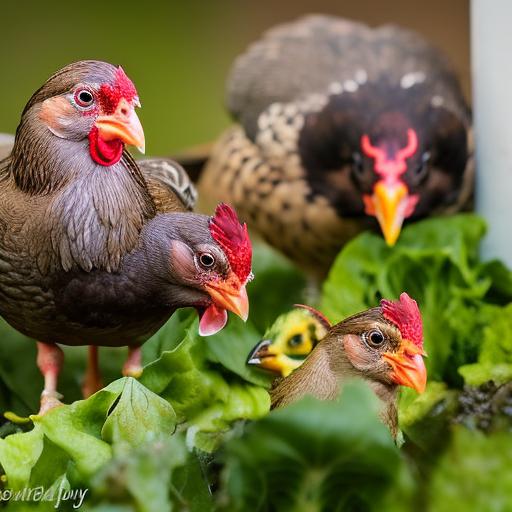Keeping chickens in a townhome setting is becoming increasingly popular as more people seek to live a sustainable and self-sufficient lifestyle. While it may seem unconventional to keep chickens in a small space, it is entirely possible with the right knowledge and preparation. In this article, we will explore the various aspects of keeping chickens in a townhome, including understanding local zoning laws, choosing the right breed, setting up a coop, caring for the chickens, dealing with noise and odor concerns, ensuring their safety and health, integrating them into the community, using them for sustainable living, and considering the legal and ethical implications.
Key Takeaways
- Understanding local zoning laws is crucial for keeping chickens in a townhome.
- Keeping chickens in a townhome can provide benefits such as fresh eggs and natural pest control.
- Choosing the right breed of chicken is important for a townhome setting, considering factors such as noise level and space requirements.
- Setting up a coop in your townhome’s outdoor space requires careful planning and consideration of local regulations.
- Feeding and caring for chickens in a townhome environment involves providing proper nutrition and hygiene, as well as monitoring their health.
Understanding Local Zoning Laws for Keeping Chickens in a Townhome
Before embarking on the journey of keeping chickens in a townhome, it is crucial to research and understand the local zoning laws. Zoning laws vary from city to city and even within different neighborhoods, so it is essential to know what is allowed in your specific area. Some cities may have strict regulations that prohibit keeping chickens altogether, while others may have specific guidelines regarding the number of chickens allowed or the size of the coop.
To find and understand local ordinances, start by contacting your city’s planning or zoning department. They will be able to provide you with information on any restrictions or requirements for keeping chickens in your area. Additionally, you can also check your city’s website or local government resources for any available information on urban chicken keeping.
Benefits of Keeping Chickens in a Townhome Setting
Keeping chickens in a townhome setting offers numerous benefits that can enhance your lifestyle and contribute to sustainable living. One of the most significant advantages is having a constant supply of fresh eggs. Unlike store-bought eggs, which may be weeks old by the time they reach your kitchen, homegrown eggs are incredibly fresh and flavorful.
Another benefit of keeping chickens is their natural pest control abilities. Chickens love to eat insects and pests, such as slugs, snails, and even small rodents. This can be especially useful in a townhome setting where outdoor spaces may be limited, and pests can become a nuisance.
Choosing the Right Breed of Chicken for Your Townhome
When choosing chickens for a townhome setting, it is essential to select breeds that are well-suited for small spaces. Some breeds are more adaptable to confinement and require less space to thrive. These breeds are typically smaller in size and have calmer temperaments.
Bantam chickens are an excellent choice for townhome living. They are smaller in size compared to standard breeds and require less space. Bantams also tend to be quieter and more docile, making them ideal for close quarters. Other suitable breeds include Silkies, which have a friendly disposition and are known for their fluffy feathers, and Polish chickens, which are small and have unique crests on their heads.
Setting Up a Coop in Your Townhome’s Outdoor Space
Setting up a coop in a small outdoor space requires careful planning to ensure the chickens have enough room to move around comfortably. The coop should provide adequate space for the chickens to roost, lay eggs, and move freely. It should also have proper ventilation to prevent the buildup of moisture and odors.
Consider using vertical space by incorporating multi-level coops or utilizing hanging feeders and waterers. This will help maximize the available space while still providing enough room for the chickens. Additionally, make sure the coop is secure and predator-proof to protect the chickens from potential threats.
Feeding and Caring for Your Chickens in a Townhome Environment

Feeding and caring for chickens in a townhome environment is similar to caring for them in any other setting. Chickens require a balanced diet consisting of grains, protein, fruits, vegetables, and access to fresh water at all times. You can purchase commercial chicken feed or create your own mix using a combination of grains, seeds, and supplements.
In a small space, it is crucial to provide enough food and water stations to prevent overcrowding and ensure all chickens have access to nourishment. Additionally, regular cleaning of the coop is essential to maintain a healthy environment for the chickens and minimize odors.
Dealing with Noise and Odor Concerns from Keeping Chickens in a Townhome
One common concern about keeping chickens in a townhome setting is the potential for noise and odor. While chickens do make noise, especially when they lay eggs or communicate with each other, there are ways to minimize the impact on your neighbors.
Choosing quieter breeds, such as bantams or Silkies, can help reduce noise levels. Additionally, providing enough space for the chickens and keeping them entertained with toys or treats can help prevent excessive noise. Regular cleaning of the coop and proper waste management can also help control odors.
Ensuring the Safety and Health of Your Chickens in a Townhome
Keeping chickens safe and healthy is of utmost importance in any setting, including a townhome. Regularly inspect the coop for any signs of damage or weakness that could allow predators to enter. Reinforce the coop with sturdy materials and install locks or latches to prevent unauthorized access.
It is also essential to provide proper healthcare for your chickens. This includes regular check-ups with a veterinarian who specializes in poultry care, vaccinations if necessary, and maintaining good hygiene practices within the coop.
Integrating Chickens into Your Townhome Community
When keeping chickens in a townhome, it is crucial to be a good neighbor and considerate member of the community. Before bringing chickens into your home, inform your neighbors about your plans and address any concerns they may have. Be open to answering questions and providing information about chicken keeping.
Additionally, take steps to minimize any potential disruptions caused by the chickens. This includes keeping noise levels under control, maintaining a clean and odor-free coop, and ensuring the chickens do not escape into neighboring yards.
Using Chickens for Sustainable Living in a Townhome
Keeping chickens in a townhome can contribute to sustainable living in various ways. One of the most significant benefits is the ability to use chicken waste for composting and gardening. Chicken manure is rich in nutrients and can be used as a natural fertilizer for plants. By composting chicken waste, you can reduce your reliance on chemical fertilizers and create a more sustainable garden.
Additionally, chickens can help reduce food waste by consuming kitchen scraps that would otherwise end up in the trash. Feeding these scraps to the chickens not only reduces waste but also provides them with additional nutrients.
Legal and Ethical Considerations for Keeping Chickens in a Townhome
Before keeping chickens in a townhome, it is essential to consider the legal and ethical implications. Ensure that you are complying with all local zoning laws and regulations regarding urban chicken keeping. This includes obtaining any necessary permits or licenses and adhering to any restrictions on the number of chickens allowed.
Ethically, it is crucial to provide proper care and welfare for the chickens. This includes providing them with adequate space, nutrition, and healthcare. It is also important to consider the impact of chicken keeping on your neighbors and community and take steps to minimize any potential negative effects.
Keeping chickens in a townhome setting is an exciting and rewarding endeavor that can enhance your lifestyle and contribute to sustainable living. By understanding local zoning laws, choosing the right breed, setting up a suitable coop, caring for the chickens, addressing noise and odor concerns, ensuring their safety and health, integrating them into the community, using them for sustainable living, and considering the legal and ethical implications, you can successfully keep chickens in a townhome environment. So why not consider adding a flock of chickens to your urban oasis?
If you live in a townhome and have always wondered if you can keep chickens, you’ll be happy to know that it is indeed possible! With a little planning and some adjustments, you can enjoy the benefits of raising chickens even in an urban setting. In fact, there are many resources available to help you get started. One article that may be of interest is “How Long for Chicken Eggs to Hatch Naturally?” This informative piece from Poultry Wizard provides valuable insights into the incubation process and offers tips on successfully hatching chicken eggs. Check it out here to learn more about this fascinating topic.
FAQs
Can you keep chickens in a townhome?
Yes, it is possible to keep chickens in a townhome, but it depends on the local laws and regulations.
What are the laws and regulations regarding keeping chickens in a townhome?
The laws and regulations vary depending on the city and state. Some cities allow residents to keep chickens with certain restrictions, while others prohibit it altogether. It is important to check with the local authorities before keeping chickens in a townhome.
How much space do chickens need in a townhome?
Chickens need at least 2-3 square feet of space per bird in their coop, and at least 8-10 square feet of outdoor space per bird to roam and forage. It is important to ensure that the coop and outdoor space are adequate for the number of chickens being kept.
What kind of coop is suitable for a townhome?
A small, portable coop that can be moved around easily is suitable for a townhome. The coop should be secure and provide adequate ventilation, nesting boxes, and roosting space for the chickens.
What do chickens eat?
Chickens eat a variety of foods, including grains, vegetables, fruits, and insects. It is important to provide them with a balanced diet that includes a mix of commercial feed and fresh foods.
What are the benefits of keeping chickens in a townhome?
Keeping chickens in a townhome can provide fresh eggs, natural pest control, and fertilizer for gardens. It can also be a fun and educational hobby for families and individuals.
Meet Walter, the feathered-friend fanatic of Florida! Nestled in the sunshine state, Walter struts through life with his feathered companions, clucking his way to happiness. With a coop that’s fancier than a five-star hotel, he’s the Don Juan of the chicken world. When he’s not teaching his hens to do the cha-cha, you’ll find him in a heated debate with his prized rooster, Sir Clucks-a-Lot. Walter’s poultry passion is no yolk; he’s the sunny-side-up guy you never knew you needed in your flock of friends!







